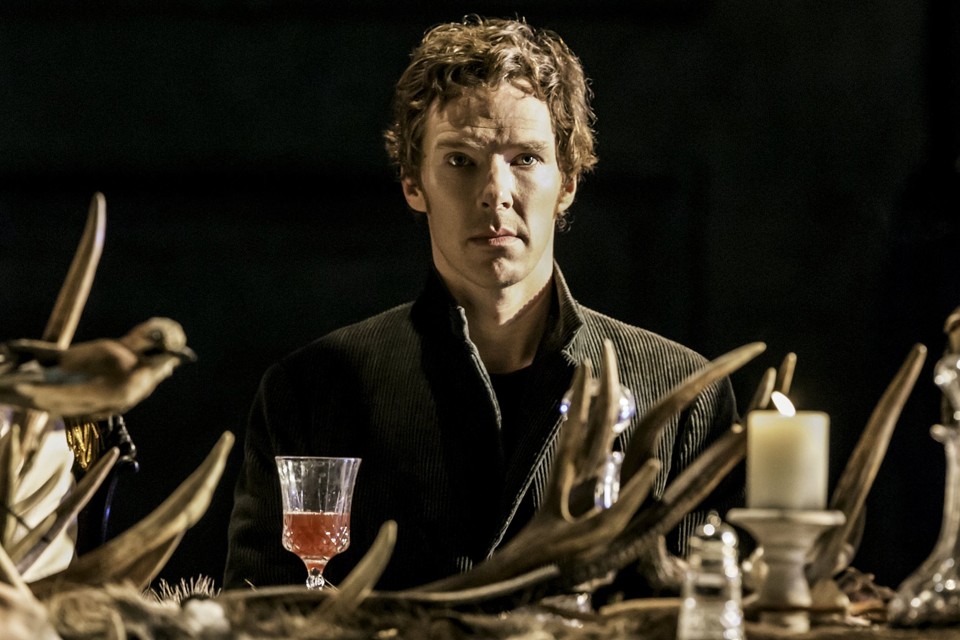Hamlet, Barbican Theatre, re-reviewed
given this Hamlet‘s unusually long and controversial preview period, The Times sent me back to review the production later in the run. This is an extended version of the edited text that appeared in The Times, 26 August 2015.
I also enjoyed many of the other reviews and the extended conversation around the production, especially Michael Billington in the Guardian, Ben Brantley in the New York Times and Scott Jordan Harris in Slate. My first review can be found here.
![]()
Cut a soliloquy, and you cut an emotional engine out of Hamlet. In Shakespeare’s 1604 quarto text, the Danish prince comes face to face with his Norwegian alter-ego, Fortinbras, and is finally galvanised to action by his rival’s superior martial spirit. His speech on this moment of comprehension begins ‘How All Occasions Do Inform Against Me’ – a play on the classical concept of occasio, or Greek kairos, the perfectly timed moment that must be seized by the forelock. Later, Shakespeare or his editors removed the speech from circulating texts: certainly by 1623 it did not appear in the posthumous First Folio. But director Lyndsey Turner’s strength is her sensitivity to Hamlet’s oft-downplayed military metaphors, and here, placed just after the interval, this once-abandoned speech becomes the aptly-timed lynchpin of a production that has finally learned not to patronise its audience.
This is not, of course, the soliloquy we’ve all been talking about all week. When I reviewed Benedict Cumberbatch in the first performance of this production, I labeled ‘indefensible’ the decision to jerk To Be Or Not To Be from its emotional home in Act III, replacing Shakespeare’s original opening scene on Elsinore’s battlements. The authorial text of Hamlet has long been contested: Shakespeare himself reshaped his work each time it was performed, bootleg publishers reconstructed it poorly from memory, and it’s in Hamlet, of course, that a precious playwright fumes about actors adlibbing. But some things work, some things don’t: just as Turner and Cumberbatch are to be applauded for restoring the 1604 text over the 1623, they were foolhardy to butcher it further in this otherwise conservative staging, which lacks the experimentalism that could make such risks exciting. Three weeks in, Turner’s moody, still over-cinematic production benefits hugely now it no longer forces its star into a bravado standing start.
Structurally, less had changed by the first of four press nights than previous reports suggested –the speech is now just a little out of joint, in Act II, not Act III. As expected, the expensive original set didn’t encompass the possibility of restoring that first battlements scene: we still meet Cumberbatch, moping in an alcove, before the felt curtain sweeps away behind him to reveal Es Devlin’s gorgeous pre-set banquet in a long-planned coup de theatre. The consequence is still to diminish Horatio’s crucial role as our guide through the story, under-using the talented Leo Bill. And it’s a strange choice in a production otherwise so invested in soldiery: ‘mad’ Hamlet will later pace the ramparts of his own toy castle. But this shortened opening nonetheless gives Cumberbatch, as powerful a presence as ever, a much-needed emotional warm-up.
This is still a production cut to frame its star. Hamlet should be a prince on the fringes of his own birthright: in the original text, we meet ten other characters (including the ghost) before he gets a chance to speak. Cumberbatch not only claims the first line (‘who’s there?’, he shouts, only for Horatio to appear), he still delivers each soliloquy, even asides, to flashes of lightning, while the other characters swirl, slow-mo, around him. Mercifully, such touches have been considerably lightened since the first showing, as has the overblown theme from Nat King Cole’s Nature Boy, late of Moulin Rouge.
Turner sprinkles the show with clever moments – sycophantic courtiers no longer buy Elizabethan miniatures of the new king, ‘his picture in little’, but commemorative coronation plates. Urgency, that crux of Hamlet, is something with which her staging still struggles– when our prince should have his uncle at his mercy, ‘now might I do it, pat’, is unconvincing when he’s looking down from a balcony, at least ten feet up and half a stage away from him. Cumberbatch himself emerges a sardonic, wrathful Hamlet, thrillingly charismatic, if short on the humility shown by more vulnerable Hamlets like Simon Russell Beale or even David Tennant. There’s much distain for the wormwood world around him, less struggle to reflect on it. Yet he is as always, one of our great verse speakers, luxuriating in the melodrama of the Players’ ‘dream of passion’.
By contrast, veteran Ciaran Hinds remains a refreshingly controlled Claudius beside Cumberbatch’s athletic energy. As Gertrude, gradually recoiling from him, Anastasia Hille is still outstanding, picking her horrorstruck way across mounds of grave-dirt like a refugee from Beckett’s Happy Days. In keeping with the rockstar vibe, Devlin is Lady Gaga’s designer and it shows: the walls of Hell still writhe with slime from Alien; a funeral procession for Ophelia still looks like a zombie parade. The high, gun-metal walls of Elsinore’s palace are appropriately cold, but offer little intimacy – the chemistry between Sian Brooke’s naïve, yet intuitive Ophelia and the always-excellent Kobna Holdbrook-Smith, her Laertes, is swallowed by their over-sized setting. Oddly, we lose Polonius’ advice to keep his garments ‘rich, not gaudy’, a warning sorely needed by this creative team.
Cumberbatch never needed to prove himself as a stage actor. His capacity for nuanced physicality was evident in Frankenstein, the same fluidity of gesture still apparent here. Yet Hamlet was always an obvious box-office move. Eddie Redmayne and Tom Hiddleston both recently reasserted their stage credentials: both did so at the non-profit Donmar, a smaller, less blockbuster space, with properly advertised, reduced-price preview periods. Hiddleston introduced a new generation to Coriolanus, Redmayne showed us again that Richard II holds its own with Hamlet as a role. That was artistic process at its best. In this heavily commercial production, there’s still plenty to praise. But if you spent £125 for a ticket to see Benedict Cumberbatch hold a mirror up to nature, you’re now getting a clearer vision in return than those who paid the same extortionate price in week one.





